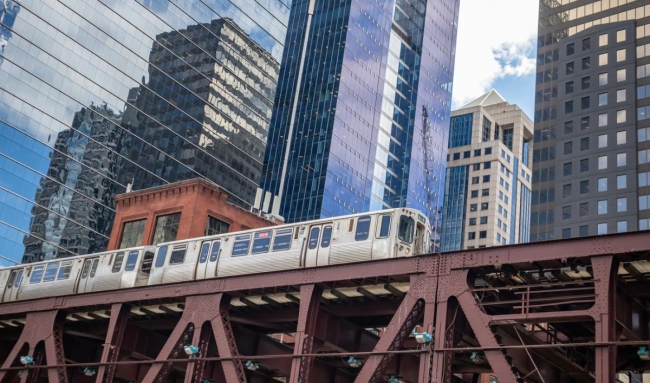You have /5 articles left.
Sign up for a free account or log in.

istock.com/Rawf8
After four and a half months of remote work, student services staff at the City Colleges of Chicago returned to campus Monday. Just days later, the workers' union representing thousands of CCC employees held a press conference. Working conditions are unsafe, they said, and if the administration doesn’t allow support staff to return to remote work, the union will go on “safety strike.”
“We are here today to urge the City Colleges administration to return to full remote student services for the fall semester, as has been done since March,” said Tony Johnston, president of the Cook County Colleges Teachers Union, which represents about 2,000 faculty, staff and security employees at the CCC.
More than 400 advisers, IT personnel, testing center employees and childcare center staff members have been working on campus this month. According to the CCC, student services personnel will be on campus during the “peak registration period” between Aug. 3 and 20. Earlier this week, CCC employees were notified that a security staff member at Olive-Harvey College had tested positive for COVID-19.
In a statement, the CCC reiterated its commitment to health and safety but did not address rollout of new safety procedures.
“Ensuring the health and safety of our students, faculty and staff, and supporting our students in reaching their academic goals are our top priorities,” the statement read. “We recognize that while some of our students can take advantage of remote services, some students with little to no prior college or technology experience are best served in-person.”
COVID-19 case counts are trending upward in Cook County, Ill., where all seven CCC colleges are located. The average number of new cases each day in Cook County is around 600. On Thursday, Illinois reported nearly 2,000 new cases.
“Since March, when CCC closed due to COVID-19, there has been no vaccine, no cure, nor any treatment for COVID, so why is CCC rushing to bring students and staff back to campus?” Lucia Mascorro, an academic advisor at Malcolm X College, said during the press conference.
The stakes are high for students and staff who are at high risk for potential COVID-19 complications.
Russha Harris, a college administrative assistant at Olive-Harvey, is a breast cancer survivor and has congestive heart failure after receiving chemotherapy.
“To see maintenance come past and only empty the garbage was really disheartening. No doorknob was wiped; no counter was wiped or disinfected or sprayed,” Harris said. “I can’t risk getting sick, because if I get sick, I just don’t think that I’m going to make it. I just want to feel safe at work. I love my job, I love what I do.”
Adriana Alvarez, a clerical assistant at Olive-Harvey, said she noticed many instances of unsafe behavior.
“Upon my return, I noticed that my immediate area had not been cleaned or sanitized. I still hadn’t received a mask. I walked into common areas where the employees or staff weren’t wearing their masks,” Alvarez said. “There’s only so much you can do with social distancing. Once you take your mask off, it’s in the air. Our ventilation isn’t the best; garbage isn’t being picked up -- in the bathrooms the running water is coming out yellow.”
In a recent member survey, three-quarters of union members said they did not trust the City Colleges to keep them safe, and only 5 percent reported feeling safe in returning to the college campuses. Johnston said that 85 percent of members said they would be willing to participate in a “safety strike” to ensure safe working conditions, which would begin on Aug. 24, the first day of classes. Johnston said that faculty also expressed willingness to strike alongside their colleagues if necessary.
The union is considering a no-confidence vote in the current CCC administration.
The CCC notes that its reopening plan has been reviewed by the Chicago Department of Public Health, and that the plans follow the standards and recommendations of the Illinois and Chicago Departments of Public Health, the Illinois Board of Higher Education, and the Centers for Disease Control and Prevention.
The union contract contains a no-strike provision, and a strike would be illegal under the Illinois Education Labor Relations Act, which the CCC pointed out when asked about the potential strike. Johnston said that even with the provision, it was not unprecedented to strike. The union last went on strike in 2004.
“This strike would be based on our safety and health. Simple enough,” Johnston said. “We’ve had the support and backing of our larger affiliates -- the Illinois Federation of Teachers and the American Federation of Teachers have both endorsed or given support to any local or councils who decide to strike on the basis of safety. While a strike itself would be illegal, if our members decide it’s necessary, we will do so.”
He believes that CCC has not been bargaining in good faith in respect to the reopening plans, and that there have been few opportunities for employees to provide feedback on the plans.
“It’s one thing to not bargain in good faith over contract negotiations, but this isn’t our livelihood, these are our lives,” Johnston said. “And so, this is a crucial matter that deserves their attention, and we have yet to see that attention.”




